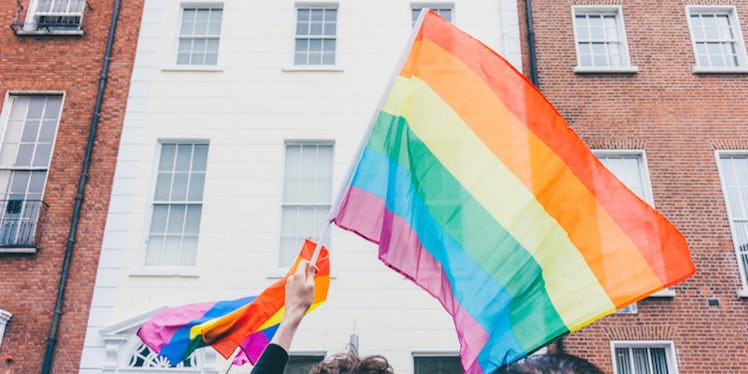Pride events have been celebrated across the US since the Stonewall riots in 1969. These events are opportunities to reflect on the accomplishments of LGBTQ+ individuals, on the movement for LGBTQ+ civil rights and on the pain and struggles of the past. It gives the LGBTQ+ community an opportunity to celebrate everything it stands for, and it allows those who are not a part of the community to come alongside its members in complete solidarity.
Pride events have expanded over the decades, and they are now celebrated in most major cities in the world. LGBTQ+ civil rights have expanded along with the global awareness of different sexualities and gender identities.
Participating in Pride events also empowers LGBTQ+ individuals to address discrimination in the workplace. Preventing discrimination can prevent psychiatric injury at work, and it can also reap major economic benefits.
According to Out Now's “LGBT Diversity: Show Me the Business Case Report,” the US alone could save up to $9 billion annually if companies were better about the inclusion of LGBTQ+ employees.
Participating in Pride can be a major benefit to the health of a company, as it decreases discrimination in the following ways:
1. Increased Love And Self-Acceptance
One of the main intentions of Pride events is to promote self-acceptance among LGBTQ+ individuals. In many communities, individuals grow up being told that certain sexualities and gender identities are unnatural and abnormal. This can — and often does — cause a sense of disjointedness or isolation within oneself.
In other words, it promotes poor self-esteem, low rates of self-acceptance and higher rates of depression. Pride events are designed to turn around this trend. They celebrate the entire spectrum of sexual and gender identities.
In the workplace, those who accept themselves are more likely to stand against discrimination in healthy ways. Unhealthy ways of facing discrimination might include being silent or ignoring the perpetrator. Those with healthy self-acceptance are more likely to have a sense of what they expect from co-workers or bosses.
When an expectation is violated due to discrimination, they can either approach the co-worker calmly, or file a report through the proper channels within the company.
2. Increased “Pride”
Another main focus of Pride events is the celebration of LGBTQ+ historical figures. These include the accomplishments of civil rights leaders or of other famous LGBTQ+ individuals. This focus promotes an understanding that people of all identities can accomplish anything. Neither sexuality nor gender determine whether individuals can be great poets, leaders or CEOs.
This encourages LGBTQ+ individuals as well as those not in the LGBTQ+ community to protest discrimination in the workplace. It is a reminder discrimination is simply pointless. Discriminating against those who are proven to be capable hurts the company, and Pride is a reminder that LGBTQ+ individuals are more than capable of accomplishing anything.
3. Increased Desire To Fight For Civil Rights
Pride events promote a desire to fight for one's own rights. When individuals begin to accept and to love themselves, they are more likely to rise up against discrimination. This empowerment helps prevent psychiatric injury at work by stopping discrimination within the workplace and by advocating for LGBTQ+ rights outside of the workplace.
4. Increased Awareness And Legal Rights
Over time, Pride has played a major role in increasing awareness for LGBTQ+ issues and in advocating for legal rights across the globe. This builds upon the increased desire to fight for oneself. Pride encourages and empowers individuals to come together to advocate for their rights in legal settings, which determine anti-discrimination laws.
The US currently does not have a federal law preventing workplace discrimination against LGBTQ+ individuals, although many states and individual companies do have such laws. Advocacy is an integral part of promoting such laws.
5. Allies
Finally, Pride events also draw participants from heterosexual and gender-normative communities. Heterosexual couples bring their young children to Pride events to support their LGBTQ+ loved ones and to teach their children to be supportive. Building allies in the non-LGBTQ+ community is crucial in preventing workplace discrimination, and Pride events are one of the main places for people to begin showing support.
